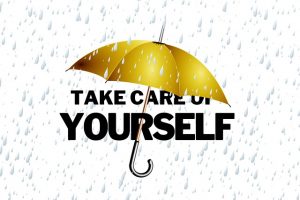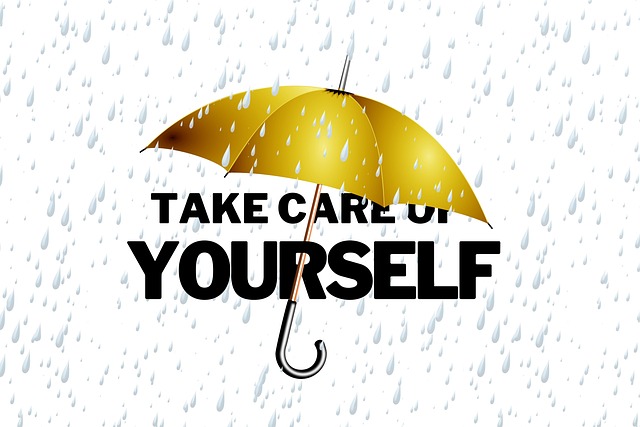Self-care is a term that has gained popularity in recent years, and for good reason. It refers to the practice of taking care of oneself, both physically and mentally, in order to maintain overall well-being. In today’s fast-paced world, it can be easy to neglect self-care in favor of work or other responsibilities.
However, prioritizing self-care is essential for leading a healthy and fulfilling life. In this post, we will explore what self-care is, its benefits, and how to incorporate it into your daily routine.
What is Self-Care?
 Self-care refers to any activity that an individual engages in to take care of their physical, emotional, or mental health. It can include anything from exercise and healthy eating to meditation and therapy. The goal of self-care is to prioritize one’s own well-being and prevent burnout or other negative consequences that can result from neglecting oneself.
Self-care refers to any activity that an individual engages in to take care of their physical, emotional, or mental health. It can include anything from exercise and healthy eating to meditation and therapy. The goal of self-care is to prioritize one’s own well-being and prevent burnout or other negative consequences that can result from neglecting oneself.
There are several different types of self-care that individuals can engage in. Physical self-care involves taking care of one’s body through exercise, healthy eating, getting enough sleep, and practicing good hygiene habits. Emotional self-care involves taking care of one’s emotional needs through activities such as journaling, spending time with loved ones, or engaging in hobbies that bring joy. Mental self-care involves taking care of one’s mental health through practices such as meditation or therapy.
Benefits of Self-Care
Practicing self-care has numerous benefits for both physical and mental health. Research has shown that engaging in regular self-care practices can reduce stress levels, improve mood, increase productivity, and even boost the immune system.
One study found that individuals who engaged in regular physical activity had lower levels of anxiety and depression than those who did not exercise regularly. Another study found that individuals who practiced mindfulness meditation had lower levels of stress hormones than those who did not engage in meditation.
In addition to these benefits, practicing self-care can also lead to better overall health outcomes. For example, individuals who engage in regular exercise and healthy eating habits are less likely to develop chronic diseases such as diabetes or heart disease.
How to Incorporate Self-Care into Your Life
Incorporating self-care into your daily routine can seem daunting, but it doesn’t have to be. There are several practical tips and strategies that individuals can use to make self-care a priority.
One important step is to set boundaries and prioritize self-care activities. This may mean saying no to certain commitments or delegating tasks to others in order to make time for self-care activities. It can also be helpful to schedule self-care activities into your calendar, just as you would with any other appointment or commitment.
Another important strategy is to start small and build up gradually. For example, if you are new to exercise, start with a short walk each day and gradually increase the duration and intensity of your workouts over time.
Self-Care for Mental Health
Self-care can be particularly beneficial for mental health. Engaging in practices such as meditation, therapy, or journaling can help individuals manage stress and anxiety, improve mood, and increase feelings of well-being.
Meditation has been shown to have numerous benefits for mental health, including reducing symptoms of anxiety and depression and improving overall well-being. Therapy can also be a helpful tool for managing mental health concerns, providing individuals with a safe space to explore their thoughts and feelings.
Self-Care for Physical Health
Self-care practices can also have significant benefits for physical health. Engaging in regular exercise, eating a healthy diet, getting enough sleep, and practicing good hygiene habits can all contribute to better overall health outcomes.
Exercise has been shown to reduce the risk of chronic diseases such as heart disease and diabetes, as well as improve overall fitness levels. Eating a healthy diet that is rich in fruits, vegetables, and whole grains can also reduce the risk of chronic diseases and improve overall health.
Self-Care for Emotional Well-Being
Self-care practices can also be helpful for emotional well-being. Engaging in activities that bring joy, spending time with loved ones, and practicing mindfulness can all contribute to better emotional health.
Journaling can be a particularly helpful tool for managing emotions and improving emotional well-being. Writing down one’s thoughts and feelings can help individuals process difficult emotions and gain insight into their own patterns of thinking and behavior.
The Power of Self-Care
Prioritizing self-care is essential for leading a healthy and fulfilling life. By taking care of oneself both physically and mentally, individuals can reduce stress levels, improve mood, and increase overall well-being. Incorporating self-care practices into one’s daily routine may take time and effort, but the benefits are well worth it.
In conclusion, self-care is an essential component of overall well-being.
By prioritizing self-care activities such as exercise, healthy eating, meditation, therapy, or spending time with loved ones, individuals can improve their physical and mental health outcomes. It is important to set boundaries and make self-care a priority in order to reap the benefits of these practices. So start small, be consistent, and prioritize your own well-being – you deserve it!








